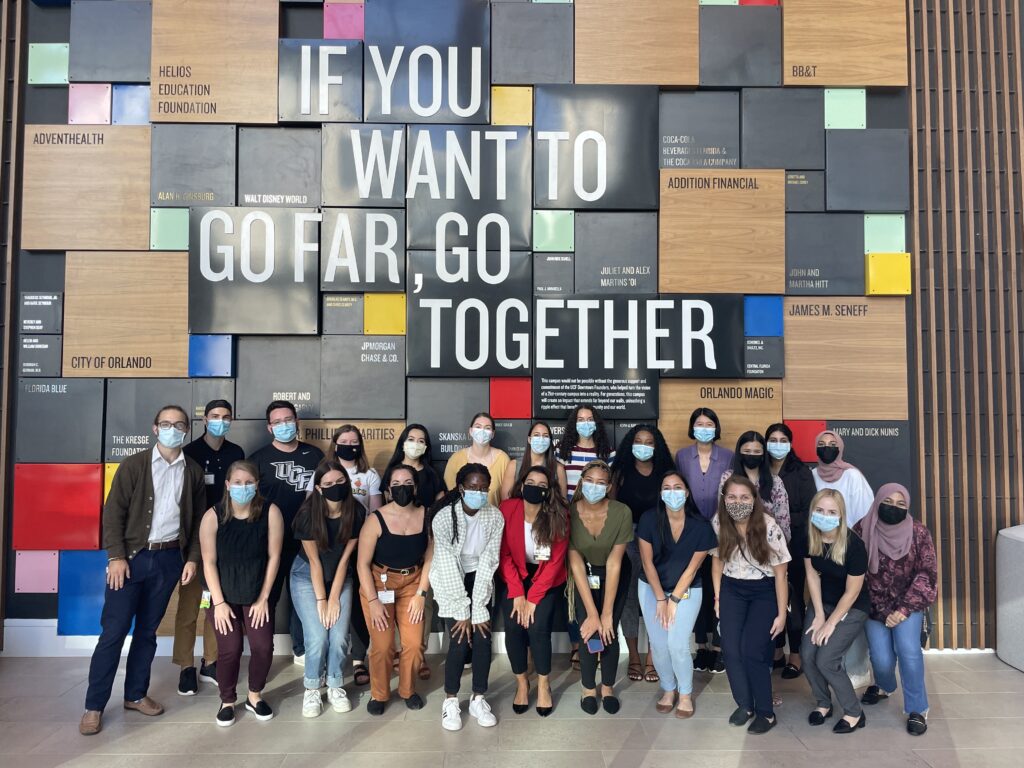Applications are now closed. Please check back in August 2025
The Healthcare Excellence Scholars Program supports student leaders from the UCF College of Medicine Burnett School of Biomedical Sciences and Medical Education to improve access to care, and examine poorer health outcomes across community groups and explore social and structural determinants of health. Program participants will utilize these tools to cultivate a culture of humanism in medicine and empower others to create positive change for healthcare access and equity.
Selected participants will be expected to:
- Design and engage in a project, initiative or research effort that addresses access to care or poor health outcomes.
- Identify a faculty advisor for the project, initiative or research effort.
- Compose a program manuscript or publishable article.
Up to 3 selected proposals will receive a $1500 award to support student time and implementation efforts. Priority will be given to fund projects, initiatives or research that are extra-curricular and not part of the student’s required academic scholarship (eg. FIRE or required academic program research).
Past Award Winners
MEDS (Medical Enrichment Program)
This program, in collaboration with ELEVATE Orlando, aims to offer mentorship to high school students who are interested in the medical field and attend our partner central Florida High Schools. We, along with physicians from the community, faculty, and other medical students, hope to give these high school students an informative view into the medical field and serve as resources for them to ask questions, set goals, and achieve those goals. We will be offering panels, field trips, and mentoring groups to give these students the tools they need for success.

Faculty Advisor: Dr. Tracy MacIntosh
SHIELD (Syringe exchange, Harm reduction, Infection Elimination Longitudinal Directives)

Faculty Advisor: Dr. Tracy MacIntosh
Orange County has had increasing incidences of blood-borne diseases and STIs for the past several years. Additionally, the opioid overdose and overdose mortality rate well-above the state and national averages. A Harm Reduction Program is a proven method of addressing these public health crises. One nascent program currently exists in Orange County. A partnership between UCF College of Medicine and the program’s sponsor, Hope and Help, would be a mutually beneficial relationship between medical students, Hope and Help, and the community. The proposed partnership would continue to propel UCF-COM along the forefront of medical education, public health care, and community benefit.